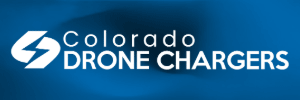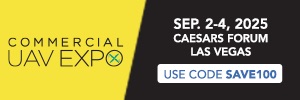@Dave Pitman
I would like to see that as well. However, all of the long standing, reputable aviation insurance companies use the OPW model. I cannot speak to the superiority of the AMA policy because I have not read one. The policy offered by AMA could be complete junk. Or, it could be a game changer and I should go work for them. As I mentioned before, without reading the policy, we have no idea what is actually in there.
With Global Aerospace, you do not need to enter your pilot exp unless your UAS exceeds 15lbs in weight. Also, it seems to me that policy holders would complain if other pilots could not fly their UAS. They would say "what kind of sense does it make for not allowing another licensed operator to fly my UAS? My car insurance policy allows other drivers to drive my car." The OPW, again, comes from the manned side of aviation insurance. ALL of my manned clients have their buddies fly their aircraft constantly. I will mention your Named Pilots Only model to the insurers.
I am not drinking the Kool Aid. I am simply informing commercial UAS operators about how UAS insurance works. We all have to operate in reality. Also, I am not disparaging the AMA insurance. As I mentioned before, I have never read one of their policies. So, I cannot comment on the quality.
As for your comment about Global not underwriting anything, you are incorrect. Global Aerospace is what is called a "Managing General Agent." Those companies that you listed have given authority, including UNDERWRITING authority, to Global Aerospace. Global Aerospace has hundreds of UNDERWRITERS working for them in the US and thousands around the world. I speak to underwriters at Global every single day. They have the authority to underwrite policies for the companies that you mentioned. These companies give authority to Global because aviation insurance is specialized. Most of the underwriters at Global, if not all, are licensed pilots (many of them are ATP). When you bind, pay, file a claim, get paid on a claim, etc., you only hear from Global Aerospace. Those companies are simply splitting the risk. I have included more information below on MGAs. Also, again, this is simply how aviation insurance works (because it is highly specialized). AIG Aerospace is an MGA (they write on National Union and Fire paper), Aerospace Insurance Managers is an MGA (they write on Hallmark paper), Avemco is an MGA (the write on HCC paper), United States Specialty Insurance Company is an MGA (they ALSO write on HCC paper), London Aviation Underwriters is and MGA (they write on Starstone paper), etc.
Managing General Agent
A specialized type of insurance agent/broker that, unlike traditional agents/brokers, is vested with
underwriting authority from an insurer. Accordingly, MGAs perform certain functions ordinarily handled only by insurers, such as binding coverage,
underwriting and pricing, appointing retail agents within a particular area, and settling claims.
Typically, MGAs are involved with unusual lines of coverage, such as professional liability and surplus lines of insurance, in which
specialized expertise is required to underwrite the policies. However, MGAs also write some personal lines business, especially in geographically isolated areas (e.g., western Oklahoma, North Dakota) where insurers do not want to set up a branch office.
MGAs benefit insurers because the expertise they possess is not always available within the insurer's home or regional offices and would be more expensive to develop on an in-house basis.
I will have to put together those numbers for you. I do not have the claim settlement numbers in front of me.
We can discuss how insurance SHOULD work in a Utopian society until we are blue in the face. However, I would rather focus on discussing/educating how UAS insurance DOES work.
Thanks,
Joe Ernster
[email protected]



